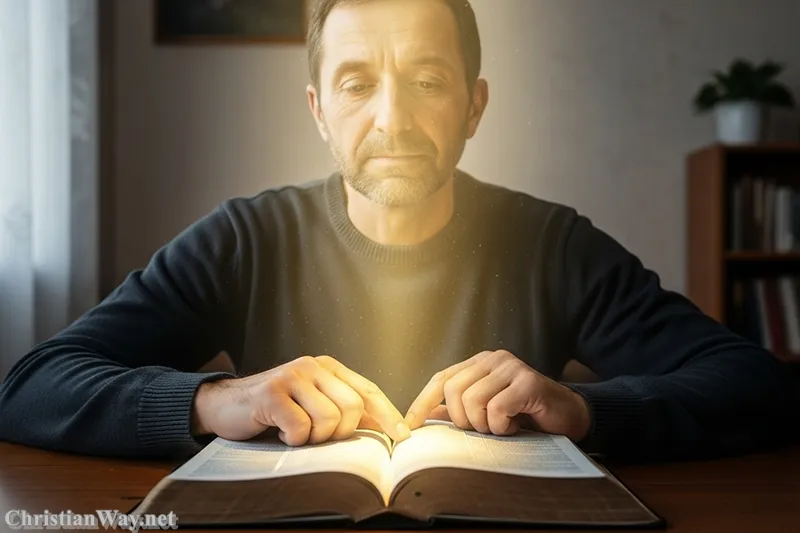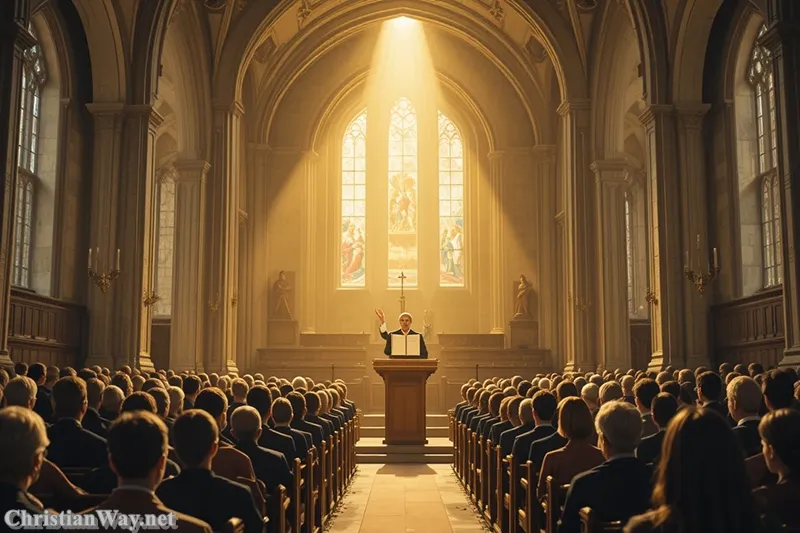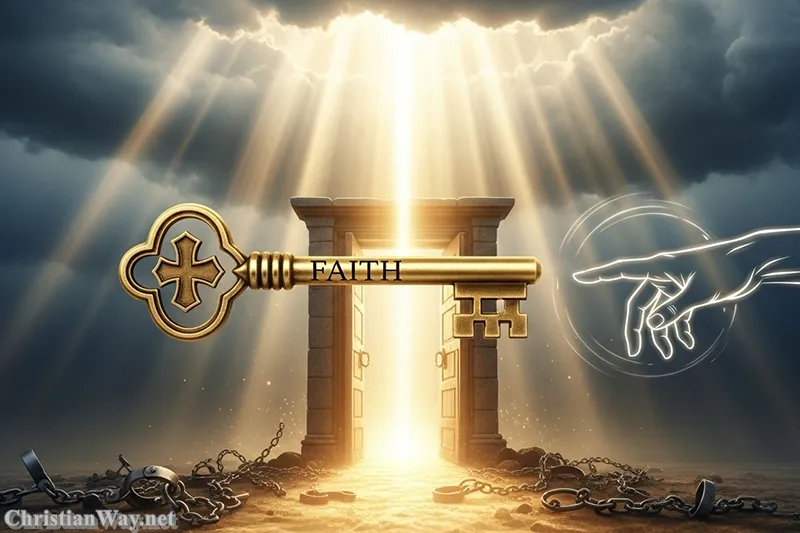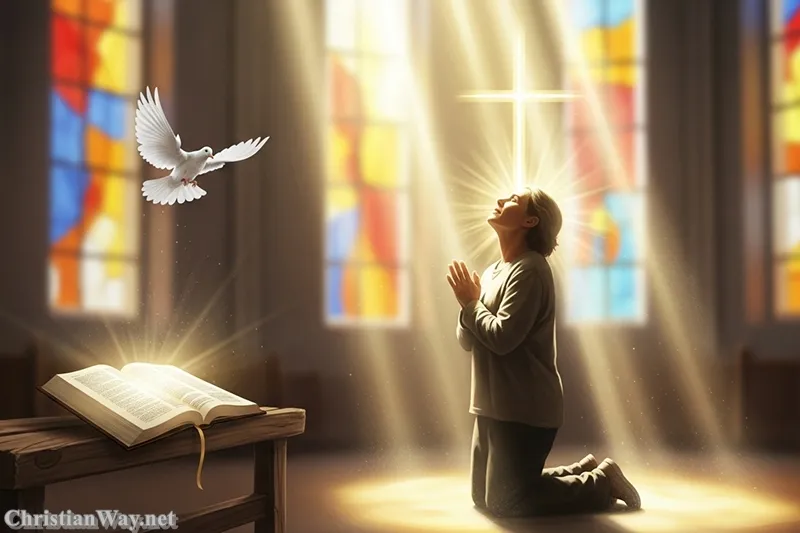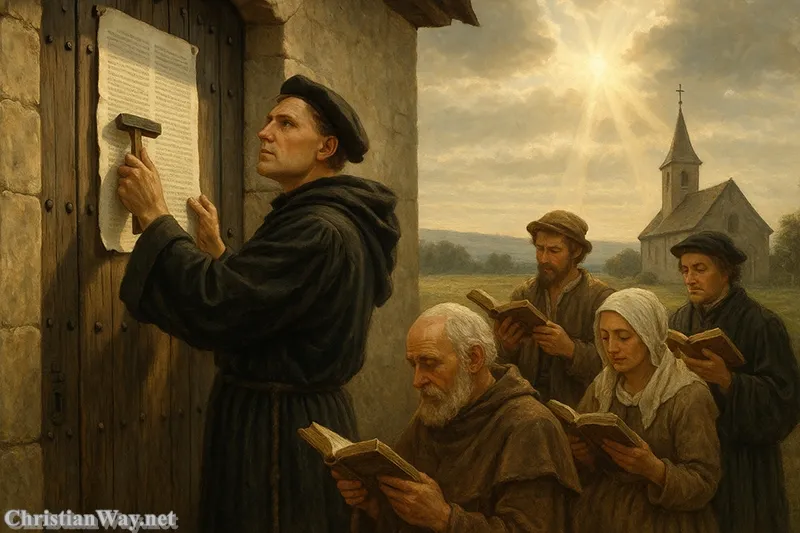Dear friends in Christ,
Every age of faith has its moments of deep struggle — times when the human heart, yearning for God, finds itself at odds with the world it has built around divine truth. The Protestant Reformation was one such moment in history: a great trembling of conscience, when men and women across Europe began to question, with urgency and devotion, what it truly meant to follow Christ and to live faithfully within His Church.
Though born from conflict and pain, the Reformation was not simply a rebellion against the old, but a profound cry for renewal — a desire to return to the living heart of the Gospel. It reminds us that every believer, and indeed every community of faith, must at times pass through seasons of purification, where love for Christ demands honesty, repentance, and courage.
In this reflection, we will walk through the meaning and legacy of the Protestant Reformation: what it was, why it happened, how it changed the world, and what it still teaches us today about faith, unity, and the enduring grace of God.
The Historical Roots of the Reformation
The Reformation began in the early 16th century, when Martin Luther, an Augustinian monk and theologian in Germany, nailed his Ninety-Five Theses to the door of the Wittenberg Castle Church in 1517. His intention was not to divide the Church, but to invite serious theological discussion about issues that weighed heavily upon his heart — especially the sale of indulgences and the question of salvation.

Luther’s conviction was simple yet revolutionary: that salvation is by faith alone (sola fide), through grace alone (sola gratia), and according to Scripture alone (sola scriptura). These ideas resonated powerfully with many who felt burdened by a faith that seemed more tied to external rituals than to the transforming love of God in Christ.
Yet Luther was not alone. Across Europe, reformers like John Calvin in Geneva, Ulrich Zwingli in Zurich, and later John Knox in Scotland, carried forward similar calls for renewal. Each movement, though distinct, shared a longing to restore what they saw as the simplicity and purity of the early Christian faith.
Theological Concerns and the Cry for Reform
Scripture and Authority
At the heart of the Reformation was the question: Who speaks for God?
The Catholic Church held that divine truth was entrusted to both Sacred Scripture and Sacred Tradition, interpreted authentically through the teaching authority of the Church — the Magisterium. Reformers, however, feared that human traditions had begun to overshadow the Word of God. Thus arose the principle of sola scriptura, affirming Scripture as the highest and final authority in matters of faith.
This was not merely an academic dispute. It was a question of how the believer encounters Christ — through institutions and sacraments, or through the personal reading of Scripture enlightened by the Holy Spirit.
Grace and Salvation
The reformers proclaimed that salvation cannot be earned by human effort, but is a free gift of God’s mercy received through faith in Jesus Christ. Luther, reading the words of St. Paul — “The just shall live by faith” (Romans 1:17) — felt liberated from years of spiritual anxiety.
The Catholic Church, while agreeing that grace is absolutely necessary for salvation, also emphasized the believer’s cooperation with that grace through good works. The Council of Trent (1545–1563) later clarified this teaching, affirming that faith and works are not in opposition, but harmonized in love — for true faith naturally bears fruit in charity.
Division and Renewal
The Reformation inevitably led to deep divisions within Christianity. What began as a call for reform within the Church soon unfolded into the creation of new ecclesial communities: Lutheran, Reformed, Anglican, Presbyterian, and many others.
Europe was shaken by wars of religion, and countless souls suffered amid the struggle. Yet, even in the midst of these painful divisions, the hand of God was at work — purifying His Church and awakening a new zeal for truth and holiness.
The Catholic Counter-Reformation, led by figures like St. Ignatius of Loyola, St. Teresa of Ávila, and St. Charles Borromeo, brought about profound spiritual renewal within the Catholic Church. Seminaries were reformed, missions expanded, and the Council of Trent reaffirmed the beauty of the sacraments and the centrality of Christ’s grace.
Thus, while the Reformation fractured visible unity, it also became a catalyst for deeper conversion on all sides.
The Legacy of the Reformation
The Gift of Scripture
The Reformation inspired a renewed love for the Bible. Translations multiplied, and laypeople were encouraged to read the Scriptures in their own languages. The Word of God, once primarily mediated through liturgy and homily, now entered homes and hearts directly.
Today, Christians of all traditions can see this as a shared blessing: the Scriptures remain the living voice of God, calling all believers to repentance, hope, and communion with Christ.
The Conscience and Freedom of Faith
The Reformation also emphasized the personal relationship between the believer and God. No longer was faith seen as something merely inherited; it became a matter of personal conviction and encounter. This emphasis helped shape modern ideas of conscience, freedom, and responsibility before God.
Yet this gift also carries a challenge — the danger of fragmentation, when every individual becomes their own authority apart from the unity Christ prayed for. As Jesus said, “that they may all be one” (John 17:21). True freedom of conscience must always remain anchored in love, humility, and communion.
The Call to Ecumenical Healing
In our time, the wounds of the Reformation still ache, but new hope has risen. The 20th and 21st centuries have seen a remarkable ecumenical movement, where Christians of all traditions seek understanding, repentance, and unity.
Documents like the Joint Declaration on the Doctrine of Justification (1999) between the Lutheran World Federation and the Catholic Church show that much common ground exists. Both traditions now affirm that salvation is entirely by God’s grace, received through faith — a sign of how the Holy Spirit continues to reconcile the Body of Christ.
We must never forget that the divisions of the past were born not of malice alone, but of longing — longing for truth, for holiness, for fidelity to Christ. If we can see this longing in one another, we can begin to walk together toward the unity our Lord desires.
Living the Spirit of Reformation Today
Renewal of Heart
The Reformation reminds us that the true reform of the Church begins within the soul. Every Christian is called to a daily reformation of heart — to be purified of pride, greed, and complacency, and to let the Holy Spirit renew us from within.
The Word and the Sacraments
Whether Catholic, Protestant, Orthodox, or Anglican, we share in the same Gospel and are nourished by the same grace of Christ. The Word of God must always lead us back to the living encounter with Jesus, and the sacraments must remind us that faith is not abstract but embodied — experienced in baptism, communion, prayer, and community.
Humility and Dialogue
The Reformation teaches us that truth must always be sought in humility. No tradition, however rich, can fully grasp the mystery of God. We need one another — the Scriptures, the saints, the sacraments, and the centuries of faithful witness across the Christian world — to glimpse the fullness of Christ.
In the Light of Christ
Dear brothers and sisters, the story of the Protestant Reformation is not merely a story of division; it is a story of God’s relentless work in human history — drawing His people back to Himself, again and again.
We who live in its aftermath are called not to repeat its wounds, but to redeem them — to let grace, not pride, shape our response to difference. The Church, in all her forms, is still being reformed by love, as the Spirit leads her ever closer to the unity of the Kingdom.
May we learn from the courage of those who sought reform, the faith of those who suffered for truth, and the mercy of the One who holds us all together in His heart.
“He who began a good work in you will bring it to completion at the day of Jesus Christ.” — Philippians 1:6
Let us pray:
Lord Jesus Christ, You are the Shepherd of all who believe in Your name. Heal the wounds of division in Your Church, and renew within us a spirit of humility and faith. Teach us to see in every Christian a brother or sister whom You love. May Your Word guide us, Your Spirit sanctify us, and Your Cross unite us in one hope.
Amen.
— Fr. John Matthew, for Christian Way
